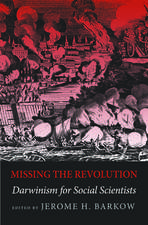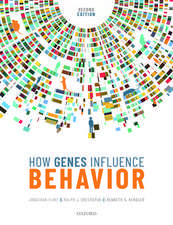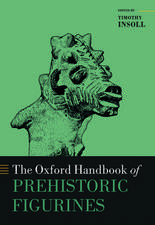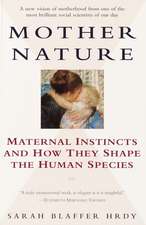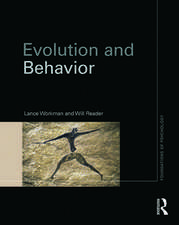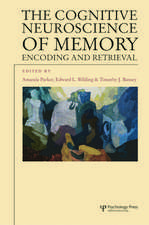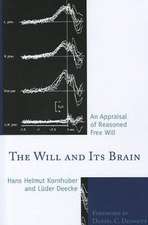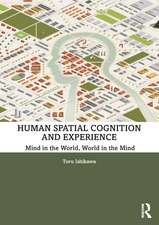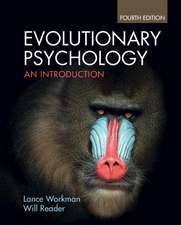The Cambridge Handbook of Evolutionary Perspectives on Human Behavior: Cambridge Handbooks in Psychology
Editat de Lance Workman, Will Reader, Jerome H. Barkowen Limba Engleză Paperback – 29 feb 2020
| Toate formatele și edițiile | Preț | Express |
|---|---|---|
| Paperback (1) | 511.59 lei 3-5 săpt. | |
| Cambridge University Press – 29 feb 2020 | 511.59 lei 3-5 săpt. | |
| Hardback (1) | 1254.71 lei 3-5 săpt. | |
| Cambridge University Press – 18 mar 2020 | 1254.71 lei 3-5 săpt. |
Din seria Cambridge Handbooks in Psychology
- 23%
 Preț: 1254.71 lei
Preț: 1254.71 lei - 11%
 Preț: 449.49 lei
Preț: 449.49 lei -
 Preț: 502.52 lei
Preț: 502.52 lei -
 Preț: 501.96 lei
Preț: 501.96 lei - 8%
 Preț: 426.60 lei
Preț: 426.60 lei -
 Preț: 486.56 lei
Preț: 486.56 lei - 5%
 Preț: 441.42 lei
Preț: 441.42 lei - 9%
 Preț: 1282.42 lei
Preț: 1282.42 lei -
 Preț: 494.25 lei
Preț: 494.25 lei - 8%
 Preț: 429.69 lei
Preț: 429.69 lei - 5%
 Preț: 397.85 lei
Preț: 397.85 lei - 23%
 Preț: 1246.12 lei
Preț: 1246.12 lei - 5%
 Preț: 439.60 lei
Preț: 439.60 lei - 19%
 Preț: 494.19 lei
Preț: 494.19 lei - 5%
 Preț: 718.47 lei
Preț: 718.47 lei -
 Preț: 511.59 lei
Preț: 511.59 lei - 8%
 Preț: 426.60 lei
Preț: 426.60 lei - 8%
 Preț: 427.05 lei
Preț: 427.05 lei - 8%
 Preț: 425.42 lei
Preț: 425.42 lei -
 Preț: 411.90 lei
Preț: 411.90 lei -
 Preț: 272.34 lei
Preț: 272.34 lei - 8%
 Preț: 425.42 lei
Preț: 425.42 lei - 9%
 Preț: 594.27 lei
Preț: 594.27 lei -
 Preț: 511.21 lei
Preț: 511.21 lei - 23%
 Preț: 1248.79 lei
Preț: 1248.79 lei -
 Preț: 370.88 lei
Preț: 370.88 lei - 8%
 Preț: 424.41 lei
Preț: 424.41 lei -
 Preț: 374.90 lei
Preț: 374.90 lei - 8%
 Preț: 427.49 lei
Preț: 427.49 lei - 5%
 Preț: 1538.86 lei
Preț: 1538.86 lei - 23%
 Preț: 2195.06 lei
Preț: 2195.06 lei - 8%
 Preț: 489.88 lei
Preț: 489.88 lei - 8%
 Preț: 428.36 lei
Preț: 428.36 lei -
 Preț: 488.47 lei
Preț: 488.47 lei - 9%
 Preț: 850.10 lei
Preț: 850.10 lei - 8%
 Preț: 430.05 lei
Preț: 430.05 lei -
 Preț: 497.35 lei
Preț: 497.35 lei -
 Preț: 283.03 lei
Preț: 283.03 lei
Preț: 511.59 lei
Nou
Puncte Express: 767
Preț estimativ în valută:
97.89€ • 102.21$ • 81.02£
97.89€ • 102.21$ • 81.02£
Carte disponibilă
Livrare economică 14-28 martie
Preluare comenzi: 021 569.72.76
Specificații
ISBN-13: 9781316642818
ISBN-10: 131664281X
Pagini: 578
Ilustrații: 22 b/w illus. 21 tables
Dimensiuni: 217 x 279 x 27 mm
Greutate: 1.59 kg
Editura: Cambridge University Press
Colecția Cambridge University Press
Seria Cambridge Handbooks in Psychology
Locul publicării:Cambridge, United Kingdom
ISBN-10: 131664281X
Pagini: 578
Ilustrații: 22 b/w illus. 21 tables
Dimensiuni: 217 x 279 x 27 mm
Greutate: 1.59 kg
Editura: Cambridge University Press
Colecția Cambridge University Press
Seria Cambridge Handbooks in Psychology
Locul publicării:Cambridge, United Kingdom
Cuprins
Introduction; Part I. The Comparative Approach: 1. Human-grey parrot comparisons in cognitive performance; 2. Cognitive abilities in elephants; 3. Culture and communication among cetaceans; Part II. Sociocultural Anthropology and Evolution: 4. Eusociality in humans; 5. The nature and psychological foundation of social universals; 6. The study of culture and evolution across disciplines; Part III. Evolution and Neuroscience: 7. Are evolutionary psychology and the neuroscience of motivation compatible?; 8. Are we designed to be happy? The neuroscience of making sense of pleasure; 9. Environmental pressures on transgenerational epigenetic inheritance: an evolutionary development mechanism influencing atypical neurodevelopment in autism?; Part IV. Group Living – The Evolution of Social and Moral Behavior: 10. The problem of altruism and future directions; 11. Can evolutionary processes explain the origins of morality?; 12. The evolution and function of third-party moral judgment; 13. Evolution of the human family; 14. The parasite-stress theory of cultural values and sociality; 15. The evolution of pride and shame; 16. Thinking outside the head: cognitive ecologies and evolutionary psychology; Part V. Evolution and Cognition: 17. Runaway processes in modern human culture: an evolutionary approach to exaggerated communication in present human societies; 18. Ontogeny of tactical deception; 19. The evolution of language: a Darwinian approach; 20. The adaptive problem of exploiting resources: human foraging behavior in patchy environments; Part VI. Evolution and Development: 21. Evolutionary developmental psychology: developing adaptations in infancy and childhood; 22. The ontogeny and evolution of cooperation; 23. Genomic imprinting is critical for understanding the development and adaptive design of psychological mechanisms in humans and other animals; 24. Evolutionary explanations for bullying behavior; 25. Birth order and evolutionary psychology; Part VII. Sexual Selection and Human Sex Differences: 26. Survival, selection, and sex differences in fear; 27. The enigmatic urge: how sexual desire works; 28. Are humans peacocks or robins?; 29. Human mate selection: a multidimensional approach; 30. Kin selection and the evolution of male androphilia; 31. Evolutionary psychology: thoughts on integrating feminist perspectives; Part VIII. Abnormal Behavior and Evolutionary Psychopathology: 32. Psychopathology from an evolutionary perspective; 33. Are we on the verge of Darwinian psychiatry?; 34. The evolution of prosocial behavior: from caring to compassion; 35. Disordered social cognition: alexithymia and interoception; Part IX. Applying Evolutionary Principles: 36. A bridge too far? Evolutionary psychology and the solutions of social problems; 37. The evolution of personality; 38. Applying evolutionary principles to criminality; 39. Substitute parenting; 40. Historians and the evolutionary approach to human behavior; 41. The psychology of extraterrestrials: the new frontier?; Part X. Evolution and the Media: 42. Daily talk shows as virtual gossip communities; 43. Supernormal stimuli in the media; 44. An evolutionary approach to horror media; 45. The internet is for porn: evolutionary perspectives on online pornography; Index.
Recenzii
'This book is a state-of-the-art compendium for understanding human nature. Chapters range from traditional Darwinian concerns about topics like mating and morality through to contemporary issues such as psychopathology and the impacts of social media. This handbook is as appealing for students as it is for professional scholars.' Richard Wrangham, Ruth B. Moore Professor of Biological Anthropology, Harvard University, and author of Catching Fire: How Cooking Made Us Human
Descriere
This handbook integrates a wide range of perspectives on the relationship between evolution and the human condition. In addition to evolutionary psychology and behavioral ecology, the inclusion of neuroscience, feminist discourse, sociocultural anthropology, and media studies makes the handbook the most comprehensive reference in the field to date.


